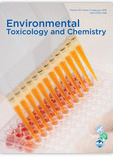
and the precise mechanism for metal toxicity for this species are not fully understood. In this research, we extrapolated Cu toxicity effects from various studies and food sources to the population level. To improve inter-study comparability, we used a biotic ligand model to correct for the water chemistry. At the population level, the range in EC10 decreased significantly compared at the individual level. This model is the first developed at Arche Consulting and the University of Ghent where we promote the use of ecological models for the risk assessment of chemicals.
News
 On January 24th and 25th, our research concerning the potential human health effects of sea spray aerosol exposure was picked up by the Belgian and Dutch media. Dr. Jana Asselman and PhD student Emmanuel Van Acker explained our latest findings which are published in the open access journal Scientific Reports. In short, we found that sea air, collected near the waterline, induced a downregulation of PCSK9 and some genes related with the mTOR pathway in lung cells lines. These results are very interesting since this gene and this pathway are potential targets for treatments against LDL cholesterol and cancer, respectively.
On January 24th and 25th, our research concerning the potential human health effects of sea spray aerosol exposure was picked up by the Belgian and Dutch media. Dr. Jana Asselman and PhD student Emmanuel Van Acker explained our latest findings which are published in the open access journal Scientific Reports. In short, we found that sea air, collected near the waterline, induced a downregulation of PCSK9 and some genes related with the mTOR pathway in lung cells lines. These results are very interesting since this gene and this pathway are potential targets for treatments against LDL cholesterol and cancer, respectively.
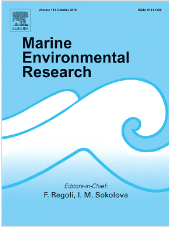
Over the past decades, the world's oceans and seas have been influenced by several human induced impacts, including climate change. Understanding the impacts of this changing environmental condition in zooplankton communities is crucial, as alterations in the zooplankton communities can affect entire marine ecosystems. Here, we focus on the potential effects of an increase in temperature on the calanoid copepod species, Temora longicornis, the dominant zooplankton species of the southern part of the North Sea. We sequenced the transcriptome (using RNA-seq technology) in T. longicornis, after being exposed to thermal stress, to investigate gene expression differences as a response to temperature fluctuations.
We are happy to announce that our colleague, Cecília Silva Pereira, on October 30, 2018, defended her dissertation to earn her doctoral degree! During her PhD, her research focused on assessing the effect of temperature on metal toxicity to Daphnia magna.
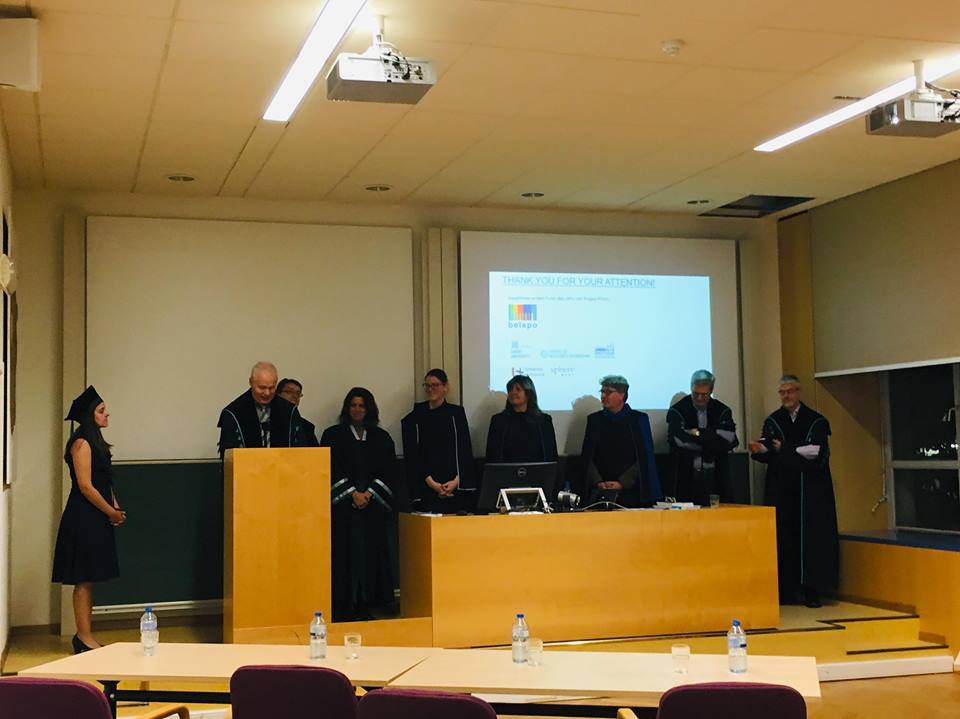
 Polyunsaturated fatty acids (PUFAs) have key biological roles in fish cells. We recently showed that the phospholipid composition of rainbow trout liver cells (RTL-W1 cell line) modulates their tolerance to an acute cadmium (Cd) challenge. Here, we investigated (i) the extent to which PUFAs and Cd impact fatty acid homeostasis and metabolism in these cells and (ii) possible mechanisms by which specific PUFAs may confer cytoprotection against Cd.
Polyunsaturated fatty acids (PUFAs) have key biological roles in fish cells. We recently showed that the phospholipid composition of rainbow trout liver cells (RTL-W1 cell line) modulates their tolerance to an acute cadmium (Cd) challenge. Here, we investigated (i) the extent to which PUFAs and Cd impact fatty acid homeostasis and metabolism in these cells and (ii) possible mechanisms by which specific PUFAs may confer cytoprotection against Cd. 
We are happy to announce that Stijn Willemse, who performed his master dissertation at our Lab, has won the ArcelorMittal Indaver Thesis Award “Environmental Science and Technology”. This award was given for the 24th time to outstanding Master students who wrote a thesis on an environmental topic. Stijn, Master of Bio-science engineering in Environmental technology, wrote his thesis on “Genetic barcoding of marine zooplankton communities in the North Sea using the MinIon Sequencer" with VLIZ as copromotor. We wish him all the best in his future career. Congratulations Stijn!
 We are happy to announce that Emmanuel Van Acker, Academic Assistant at our Lab, has won the second runner up prize for best student poster presentation at the 53rd European Marine Biology Symposium. This award was given for his poster "Human exposure to to algal toxins via sea spray aerosols". Congratulations Emmanuel!
We are happy to announce that Emmanuel Van Acker, Academic Assistant at our Lab, has won the second runner up prize for best student poster presentation at the 53rd European Marine Biology Symposium. This award was given for his poster "Human exposure to to algal toxins via sea spray aerosols". Congratulations Emmanuel!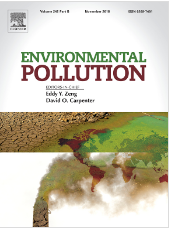 We performed an environmental risk assessment for microplastics (<5 mm) in the marine environment by estimating the order of magnitude of the past, present and future concentrations based on global plastic production data. In 2100, from 9.6 to 48.8 particles m−3 are predicted to float around in the ocean, which is a 50-fold increase compared to the present-day concentrations. From a meta-analysis with effect data available in literature, we derived a safe concentration of 6650 buoyant particles m−3 below which adverse effects are not likely to occur.
We performed an environmental risk assessment for microplastics (<5 mm) in the marine environment by estimating the order of magnitude of the past, present and future concentrations based on global plastic production data. In 2100, from 9.6 to 48.8 particles m−3 are predicted to float around in the ocean, which is a 50-fold increase compared to the present-day concentrations. From a meta-analysis with effect data available in literature, we derived a safe concentration of 6650 buoyant particles m−3 below which adverse effects are not likely to occur.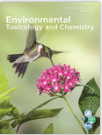 The hardness values of a substantial proportion of Australian freshwaters fall below the application boundary of the existing European nickel biotic ligand models (Ni BLMs) of 2 mg Ca/L. Modifications were made to the Ni BLM by increasing the binding constants for Ca and Mg at the biotic ligand to account for softer waters encountered in Australia and the more important competitive effect of Ca and Mg on Ni toxicity.
The hardness values of a substantial proportion of Australian freshwaters fall below the application boundary of the existing European nickel biotic ligand models (Ni BLMs) of 2 mg Ca/L. Modifications were made to the Ni BLM by increasing the binding constants for Ca and Mg at the biotic ligand to account for softer waters encountered in Australia and the more important competitive effect of Ca and Mg on Ni toxicity.